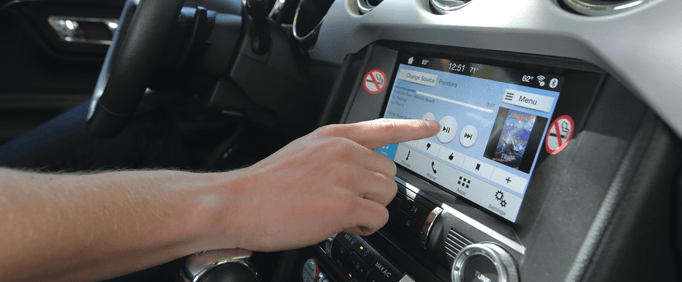Distracted driving — an epidemic on the roads.
Posted By Darrigo & Diaz

Jennifer Smith doesn’t like the term “accident.” It implies too much chance and too little culpability.
A “crash” killed her mother in 2008, she insists, when her car was broadsided by another vehicle while on her way to pick up cat food. The other driver, a 20-year-old college student, ran a red light while talking on his cell phone, a distraction that he immediately admitted and cited as the catalyst of the fatal event.
Over the past decade, distracted driving has become an epidemic. According to the National Highway Traffic Safety Administration (NHTSA), distracted driving was responsible for nearly 3,500 fatal crashes and more than 390,000 injuries in 2015. Further, an estimated 660,000 people use cell phones while driving each day and approximately 30 percent of car crashes are caused by cell phone use.
Drivers are more distracted than ever—but it’s not just cell phone use. Distracted driving involves three categories: visual, manual and cognitive.
- Anything that takes your eyes off the road
To stay safe, drivers must continuously scan the road, check mirrors and look out for other cars, pedestrians, traffic signals or obstacles. When drivers take their eyes off of the road, they are essentially driving blind. Sending or reading a text takes your eyes off the road for five seconds. At 55 mph, that’s like driving the length of an entire football field with your eyes closed.
Common types of visual distractions include:
- Cell phones
- GPS devices
- Radio and A/C controls
- Digital entertainment or DVDs
- Checking the seatbelts of children while driving
2. Anything that takes your hands off the wheel
These distractions cause you to take one or both hands off the wheel while driving, which is very dangerous. If one or both hands are doing something else, you do not have adequate control over your car. Thus, you should avoid manual distractions and always have your hands on the steering wheel.
Common types of manual distractions include:
- Using a cell phone
- Eating something
- Holding a drink
- Fiddling with a GPS or radio and A/C controls
- Grabbing something from a purse or bag
- Petting an animal
3. Anything that takes your mind off driving
This category involves cognitive distractions. While driving, you may have trouble concentrating on the road. Instead, your mind may wander or get side-tracked by a conversation or thought. If you aren’t focusing on driving, you may be unable to identify potential risks and take necessary maneuvers to avoid a collision. You’ll be driving, but you won’t be paying attention.
Common types of cognitive distractions include:
- Using a hands-free electronic device
- Having an emotional conversation with a passenger
- Daydreaming
- Thinking about issues unrelated to driving, such as work and family issues
- Listening to a podcast or radio
Cell phones are incredibly dangerous because they fall into all three categories, but hands-free devices are just as bad. Studies have found that drivers become more focused on the messages they are creating than on the road in front of them. In fact, if you draft a message verbally on a hands-free device, your mind will only register about 50% of the road in front of you, even if your eyes are wide open. This is because your mind can only do one thing at a time. It is like reading a book and having a conversation with someone simultaneously. Thus, you should avoid relying on hands-free devices while driving.
Tampa’s Personal Injury Law Firm
If you’ve been injured in an accident that was due to the negligence of another driver, you may be entitled to thousands of dollars in compensation for your injuries, lost wages, and general pain and suffering. In the state of Florida, it is very important to seek legal representation so you know your rights under the full extent of Florida laws. The law office of Darrigo & Diaz has a complete personal injury and auto accident team of lawyers, investigators, and paralegals ready to defend your rights aginst insurance companies who often play hardball and offer far less compensation than what your case is actually worth. You can call our office for free answers to all your questions, or schedule a free appointment now to discuss your case–there are no fees or costs unless we win a settlement for you.
For a free information regarding your accident, or to schedule a complimentary consultation at our office on Armenia in Tampa, call us at 813-877-5548.

